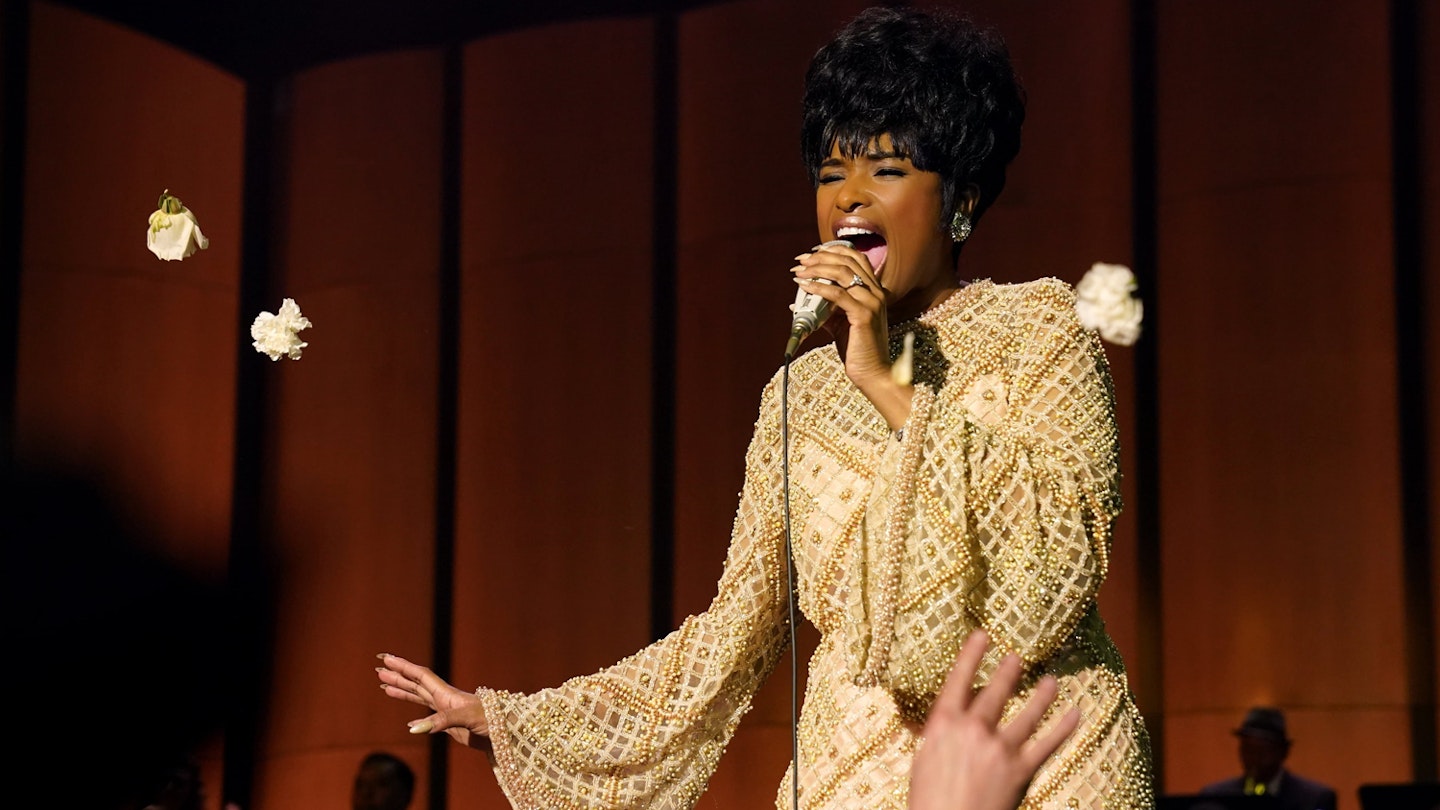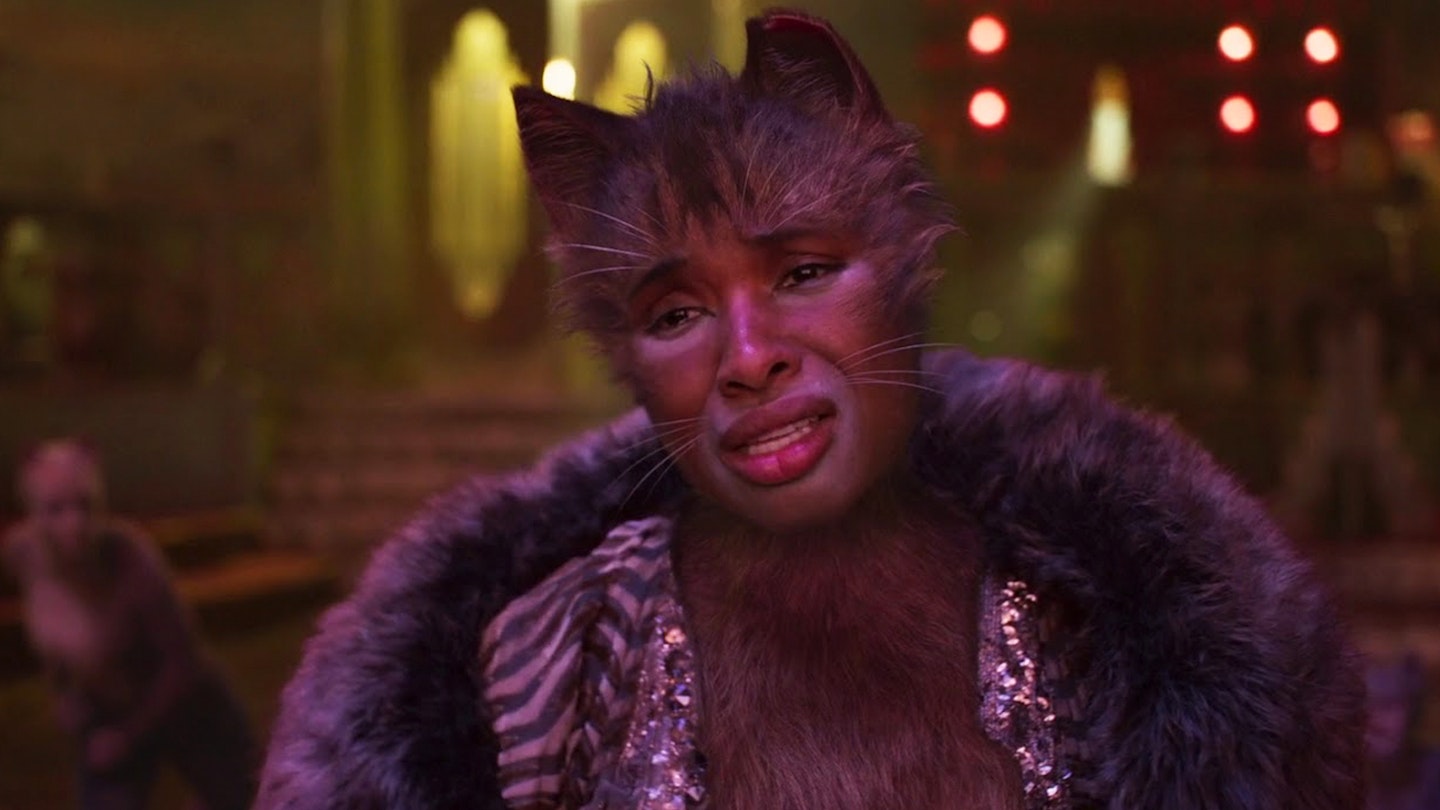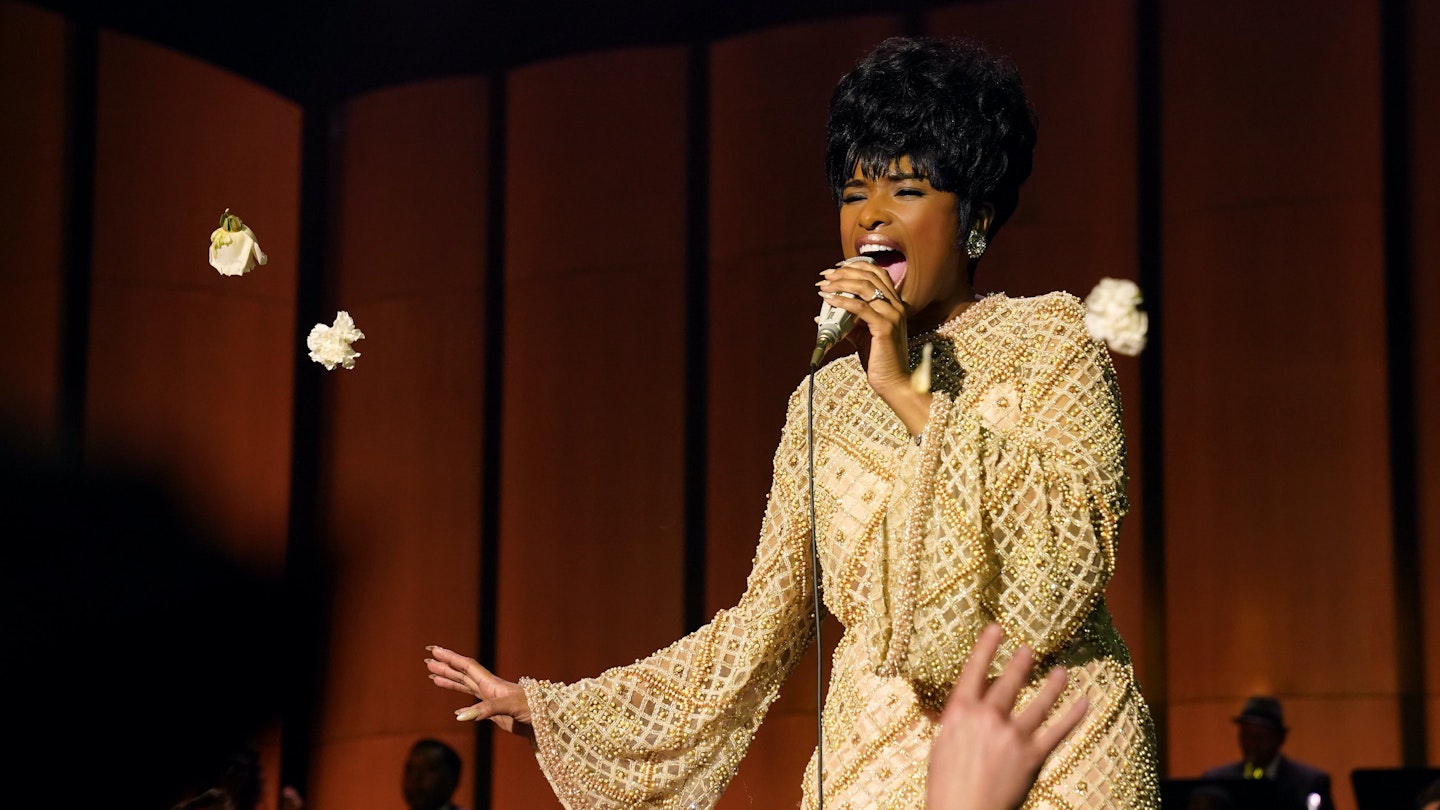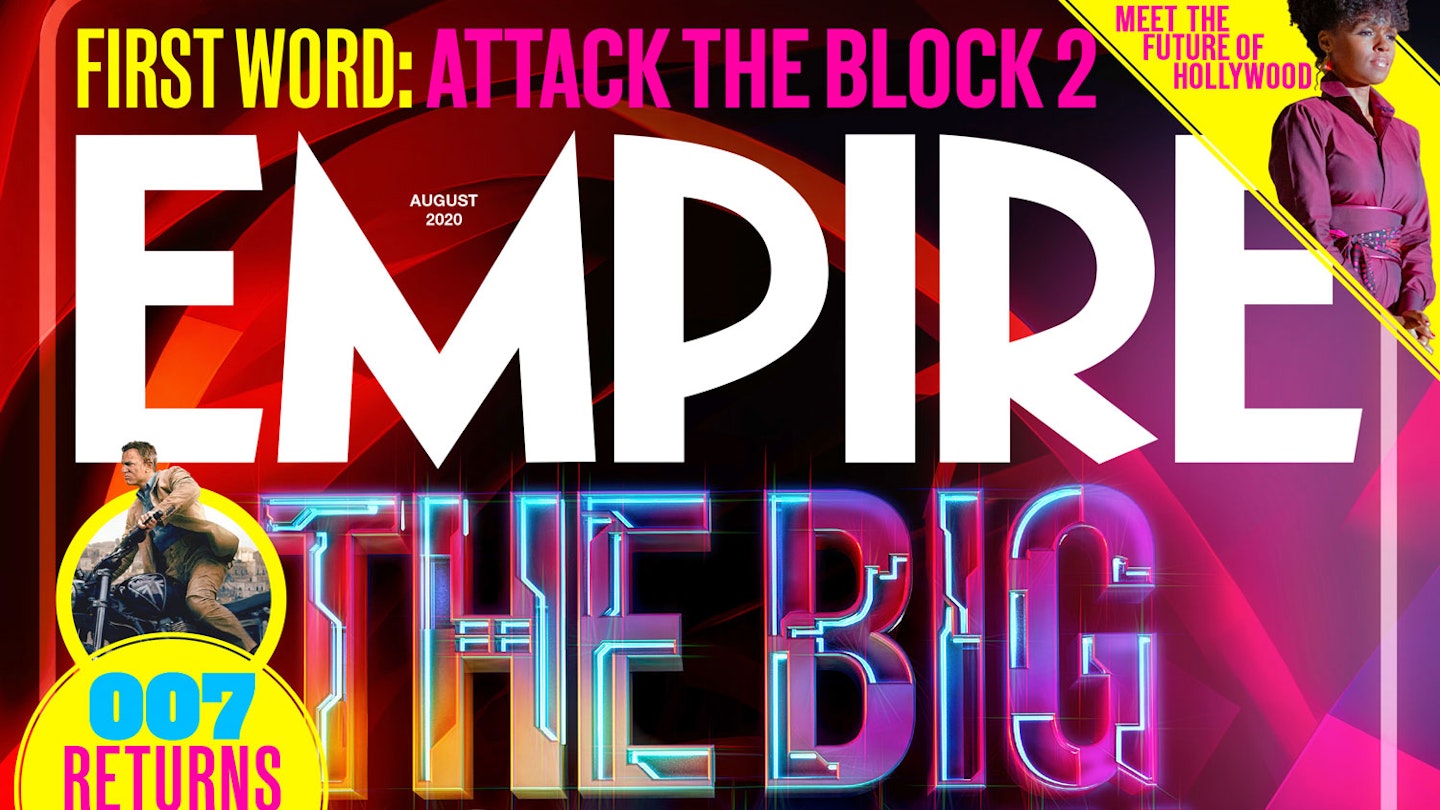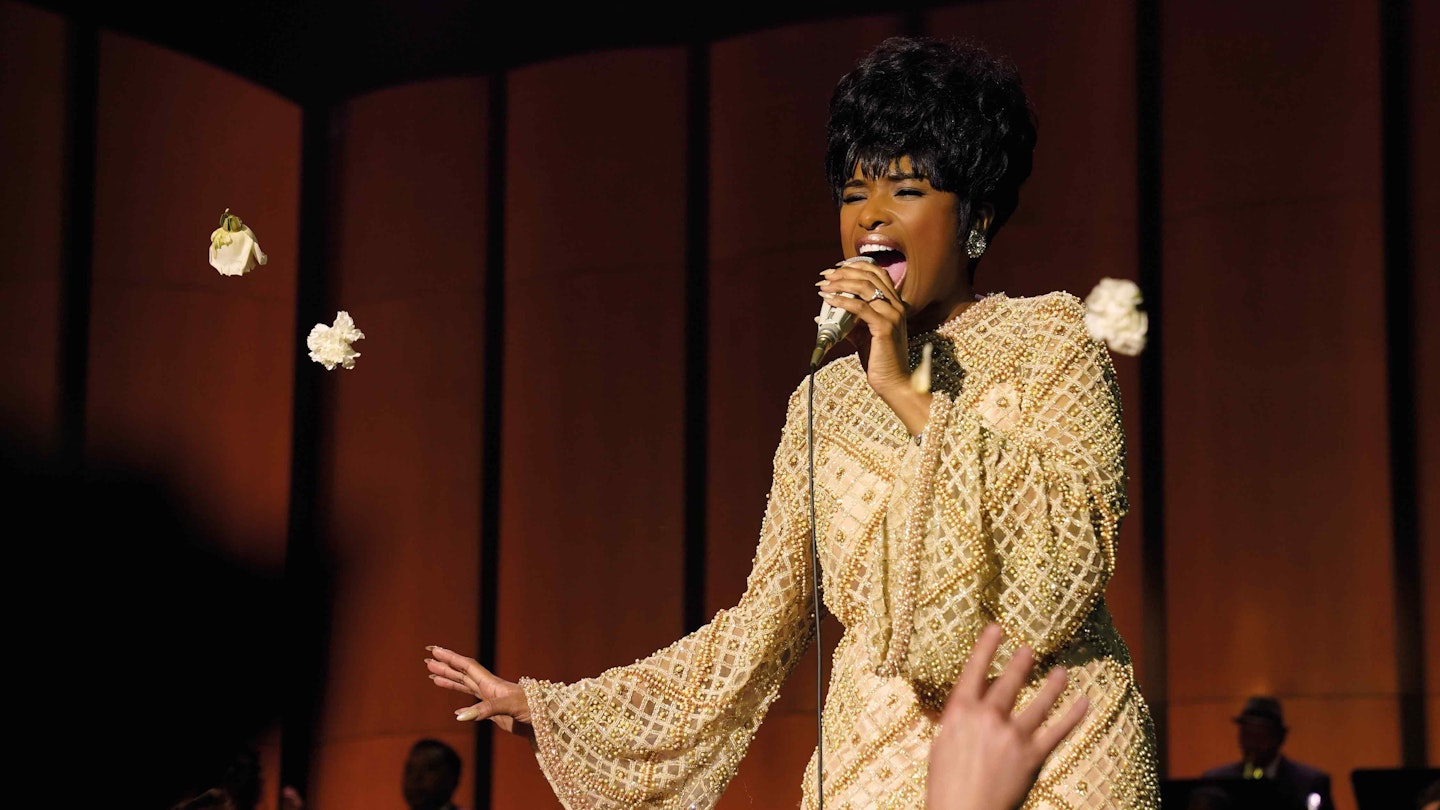Aretha Franklin lived a long life, and never followed the simple rags-to-riches-to-drug-addiction-to-rebirth narrative of so many of her contemporaries. Franklin was born into relative comfort and driven by a complicated mix of ruthless ambition and filial piety rather than desperate poverty. Yet from this complexity, theatre director Leisl Tommy crafts a fairly basic, if largely effective, narrative, focusing on Franklin’s efforts first to find her own sound and then to overcome the demons that threaten to overwhelm her.

After childhood scenes with Skye Dakota Turner as a likeable and seriously talented young ‘Ree’, Jennifer Hudson takes over as Aretha for the decade-and-a-half where she went from church soloist to global superstar. The young singer earned her stripes singing at her father’s (Forest Whitaker) church and on tours around the country, but her secular career is a series of flops until she starts working with producer Jerry Wexler (Marc Maron) — despite the jealous distrust of her husband Ted (Marlon Wayans).
Franklin’s family was involved in this, and perhaps that explains some flattening of the messier bits of her life.
Lurking behind Franklin’s professional struggles are darker, personal secrets: the fact that she first became pregnant at 12, and that she struggled with depressive episodes. The film touches on her connection to Martin Luther King Jr (Gilbert Glenn Brown) and her considerable civil-rights campaigning, but doesn’t quite delve into how risky or how pioneering she was. Often the film’s focus is on the outward meekness and deeply inculcated reserve of a reverend’s daughter, so that we sometimes lose sight of the iron will underneath. It’s the formidable and prickly older Ms Franklin, the singer who in 2008 called out actual Beyoncé for seemingly deeming Tina Turner the queen of soul while introducing her at the Grammys, who would make a more radical subject — and unfortunately this film doesn’t go nearly that far.
Franklin’s family was involved in this, and perhaps that explains some flattening of the messier bits of her life. Still, it’s hard to entirely make sense of her devotion to and frustration with her charismatic father without knowing how they navigated her two early pregnancies. Hudson gives Franklin some edge — her facial reactions as her blustering husband grandstands are priceless — but it’s hard to fit much personality into a script that’s racing through world-changing events as well as half of Franklin’s back catalogue, and while Tommy mounts the story handsomely, she isn’t nearly as innovative as her subject, with handsomely staged but static shots and a largely linear approach. There’s dramatic meat left on the bone in her close, loving and fiercely dominant attitude to her sisters, and in her strained romances.
The real elephant in the room is that Jennifer Hudson is immensely talented, but no-one is Aretha Franklin. Hudson can belt out the big numbers but — as a mid-credit clip shows — Franklin herself had extraordinary richness and depth of tone that no-one can match (Cynthia Erivo, in a TV bio serial, came a little closer, but even she isn’t Aretha). It’s a problem that the whole film shares: try as it might to touch on her struggles with family, alcohol, structural racism and sexism and groundbreaking musical innovation, it can’t capture the full breadth of Franklin’s extraordinary success. There’s only one Queen Of Soul, and we’re just lucky to have heard her.
